Discover Let's Talk Micro
Let's Talk Micro

Let's Talk Micro
Author: Luis Plaza
Subscribed: 132Played: 2,600Subscribe
Share
© Luis Plaza 2021
Description
Clinical microbiology explained in simple terms, suitable for students and microbiologists alike. We discuss organisms, reactions, infectious diseases, and more. Hosted by Luis Plaza, a Medical Laboratory Scientist and microbiologist, who also shares his experiences in the field.
209 Episodes
Reverse
Antimicrobial resistance (AMR) continues to grow as a global health threat, making infections harder to treat and leaving fewer options for patients. The need for new antibiotics is an urgent matter — but traditional discovery methods are slow and limited. In this episode of Let’s Talk Micro, Luis is joined by Dr. James Collins, professor at MIT and researcher at the Broad Institute, who is leading efforts to apply AI to antibiotic discovery. We discuss how his team used deep learning to uncover promising new compounds, including NG1 and DN1, which showed activity against drug-resistant Neisseria gonorrhoeae and Staphylococcus aureus. We also talk about the challenges of bringing discoveries from computer models to the clinic, and what this approach could mean for the future of the fight against superbugs. Link to study: https://www.cell.com/cell/abstract/S0092-8674%2825%2900855-4 Check out the website: https://www.letstalkmicro.com/ Questions? Feedback? Send those to letstalkmicro@outlook.com Want to support the podcast? Here's how: Venmo: https://venmo.com/u/letstalkmicro Buy me a Ko-fi: https://ko-fi.com/letstalkmicro
Last week, we discussed early growth isolates for antimicrobial susceptibility testing (AST) and the importance of obtaining results sooner. This week, we revisit an earlier study that looked at early growth but using disk diffusion. In this episode, I was joined by Dr. Carey-Ann Burnham, Dr. Daniel Webber, and Meghan Wallace to discuss their work. Tune in to hear how this approach could help deliver AST results faster, the challenges of adopting early growth methods, and what it means for clinical microbiology labs. This episode was originally released in 2022 (Episode 39: “Talking disk diffusion performed on early growth”). Link to disk diffusion study: https://doi.org/10.1128/jcm.03007-20 Check out the website: https://www.letstalkmicro.com/ Questions? Feedback? Send those to letstalkmicro@outlook.com Want to support the podcast? Here's how: Venmo: https://venmo.com/u/letstalkmicro Buy me a Ko-fi: https://ko-fi.com/letstalkmicro
In this episode of Let’s Talk Micro, Dr. Jennifer Dien Bard and Dr. Lucas Osborn discuss their recent study on early growth antimicrobial susceptibility testing (AST). Traditional AST often requires 18–24 hours of incubation of isolates, delaying targeted treatment. Their research shows that using 6-hour early growth isolates with both automated and manual methods delivers accurate results up to 18 hours faster—without added costs or specialized equipment. The conversation explores the study design, agreement rates with standard methods, and what faster AST means for patient care and antimicrobial stewardship. Link to study: https://doi.org/10.1128/jcm.00236-25 Link to disk diffusion study: https://doi.org/10.1128/jcm.03007-20 Check out the website: https://www.letstalkmicro.com/ Questions? Feedback? Send those to letstalkmicro@outlook.com Want to support the podcast? Here's how: Venmo: https://venmo.com/u/letstalkmicro Buy me a Ko-fi: https://ko-fi.com/letstalkmicro
This week, Luis is joined by Dr. Ashlan Kunz-Coyne to discuss some of the newest antibiotics for urinary tract infections (UTIs). They explore why extended-spectrum beta-lactamases (ESBLs) are a growing concern, the impact of E. coli sequence type 131, and where new agents like cefepime–enmetazobactam, sulopenem, and tebipenem fit into treatment. The conversation also highlights clinical data, stewardship considerations, and how the infectious diseases and microbiology communities can work together to preserve these options. Plus, Dr. Kunz-Coyne reveals her favorite bug—Stenotrophomonas maltophilia—and why it’s unlike any other. Link to sulopenem episode: https://directory.libsyn.com/episode/index/id/35868135 Check out the website: https://www.letstalkmicro.com/ Questions? Feedback? Send those to letstalkmicro@outlook.com Want to support the podcast? Here's how: Venmo: https://venmo.com/u/letstalkmicro Buy me a Ko-fi: https://ko-fi.com/letstalkmicro
Season 5 premieres today! Antimicrobial susceptibility testing (AST) is essential for guiding effective treatment—but how has it evolved, and what challenges are we still facing? In the first episode of this series in collaboration with bioMérieux, Dr. Andrea Prinzi joins Let’s Talk Micro to explore the evolution of AST—from early methods to modern platforms like VITEK 2. We discuss the known issue of outdated breakpoints in clinical practice, the challenges with regulatory hurdles, and the impact of the 21st Century Cures Act. What is the Cures Act, and how does it affect the way breakpoints are adopted? Why are delays still happening? And most importantly—what can laboratories, organizations, and manufacturers do to drive change? Tune in to understand where we’ve been, where we are, and where we need to go in the world of AST. This episode is sponsored by bioMérieux, a global innovator in infectious disease diagnostics. Resources from bioMérieux: https://info.biomerieux.com/clin_us_2024_ams_handbook?utm_source=podcast&utm_medium=show-notes&utm_campaign=LetsTalkMicro Additional breakpoint links: https://doi.org/10.1128/jcm.00106-25 Check out the website: https://www.letstalkmicro.com/ Questions? Feedback? Send those to letstalkmicro@outlook.com Want to support the podcast? Here's how: Venmo: https://venmo.com/u/letstalkmicro Buy me a Ko-fi: https://ko-fi.com/letstalkmicro
This episode of Let’s Talk Micro features Dr. Andrea Prinzi, a clinical microbiologist and frequent contributor to the American Society for Microbiology. Andrea joins the podcast to discuss a critical topic in clinical microbiology: antimicrobial susceptibility testing and breakpoints. Are labs using outdated breakpoints—and what does that mean for patient care? How are breakpoints determined and updated? Dr. Prinzi breaks it all down and shares insights from her article on the subject. Tune in to learn why staying current on breakpoints matters and what steps labs can take to improve antimicrobial stewardship. This episode was originally published on May 5th, 2022. Check out the website: https://www.letstalkmicro.com/ Link to articles: https://asm.org/Articles/2022/February/Updating-Breakpoints-in-Antimicrobial-Susceptibili https://doi.org/10.1128/jcm.00106-25 Questions? Feedback? Send those to letstalkmicro@outlook.com Want to support the podcast? Here's how: Venmo: https://venmo.com/u/letstalkmicro Buy me a Ko-fi: https://ko-fi.com/letstalkmicro
The Clinical Microbiology Procedures Handbook (CMPH) has long been a trusted resource for laboratories. With the release of its 5th edition, this essential reference continues to guide clinical microbiologists through evolving standards, methods, and best practices. In this episode, Luis is joined by the editors‑in‑chief, Dr. Amy Leber and Dr. Carey‑Ann Burnham, to explore what’s new in the latest edition, how the CMPH supports day‑to‑day work in the lab, and why it remains a cornerstone in clinical microbiology. (Originally published May 4, 2023.) Check out the website: https://www.letstalkmicro.com/ Questions? Feedback? Send those to letstalkmicro@outlook.com Want to support the podcast? Here's how: Venmo: https://venmo.com/u/letstalkmicro Buy me a Ko-fi: https://ko-fi.com/letstalkmicro
This week, Luis is joined by Dr. Christopher Doern from VCU Health to explore the complex world of diabetic wound cultures. How does diabetes impair wound healing—and what makes these infections so difficult to diagnose and treat? Dr. Doern dives into the microbiology behind diabetic foot wounds, highlighting the impact of bacterial diversity, specimen quality, and the limitations of traditional culture methods. He also shares best practices for workup strategies and antibiotic selection in these often polymicrobial infections. Link to studies mentioned in the episode: https://pubmed.ncbi.nlm.nih.gov/28669650/ https://doi.org/10.1111/j.1742-481X.2011.00937.x https://academic.oup.com/ofid/article/10/10/ofad495/7292955 Want to be added to Dr. Doern’s email list? Reach out to christopher.doern@vcuhealth.org Questions? Feedback? Send those to letstalkmicro@outlook.com Want to support the podcast? Here's how: Venmo: https://venmo.com/u/letstalkmicro Buy me a Ko-fi: https://ko-fi.com/letstalkmicro
Recorded live at ASM Microbe 2025, this episode captures the energy of the American Society for Microbiology’s annual event. Luis shares his top takeaways from the conference floor—including standout poster presentations, emerging technologies, and trending topics in microbiology. One clear theme dominated this year: rapid diagnostics for identification and susceptibility testing. Tune in for a front-row seat to the latest in clinical microbiology innovation. Questions? Feedback? Send those to letstalkmicro@outlook.com Want to support the podcast? Here's how: Venmo: https://venmo.com/u/letstalkmicro Buy me a Ko-fi: https://ko-fi.com/letstalkmicro
In this episode of Let’s Talk Micro, we dive into the fast-paced world of rapid antimicrobial susceptibility testing (AST). Recorded live from ASM Microbe 2025, Luis is joined by Dr. Carey-Ann Burnham, CEO of Pattern Bioscience and Editor-in-Chief of the ASM Case Reports journal. Together, they explore how innovative technologies—like single-cell microbiology—are transforming clinical microbiology and accelerating diagnostic results. What is single-cell microbiology, and how does it improve rapid diagnostics? They also discuss case reports from ASM that highlight the real-world impact of timely diagnostic tools on patient care. It’s where speed meets science—and the stories behind the data truly matter. Questions? Feedback? Send those to letstalkmicro@outlook.com Want to support the podcast? Here's how: Venmo: https://venmo.com/u/letstalkmicro Buy me a Ko-fi: https://ko-fi.com/letstalkmicro
How familiar are you with partnerships and collaborations between the laboratory and the diagnostics industry? In this episode Luis is joined by Dr. Andrea Prinzi and Dr. Kristen Smith to explore how partnerships between clinical labs, public health institutions, and the diagnostics industry drive innovation in in-vitro diagnostics (IVDs). What is the IVD pipeline? From discovery to product launch and beyond, these collaborations improve patient care, accelerate access to new technologies, and enhance public health outcomes. Why breaking silos and fostering inclusive partnerships is essential for the future of diagnostics? Tune in to find out. Link to article: https://doi.org/10.1016/j.clinmicnews.2025.04.001 Questions? Feedback? Send those to letstalkmicro@outlook.com Want to support the podcast? Here's how: Venmo: https://venmo.com/u/letstalkmicro Buy me a Ko-fi: https://ko-fi.com/letstalkmicro
TBT- This week Let's Talk Micro is talking about virology, specifically about the Human Immunodeficiency Virus (HIV). This episode features an interview with Dr. Hsu, a stem cell specialist from the Weill Medical College at Cornell University in New York. She discusses an article about a patient that has been possibly cured from HIV after a stem cell transplant with cord blood cells. What is the CCR5 gene? What is its relationship to HIV? Tune in to find out about this interesting article. This episode was originally published on April 14th , 2022. Link to article: https://news.weill.cornell.edu/news/2022/02/patient-possibly-cured-of-hiv-infection-by-special-stem-cell-transplant Questions? Feedback? Send those to letstalkmicro@outlook.com Want to support the podcast? Here's how: Venmo: https://venmo.com/u/letstalkmicro Buy me a Ko-fi: https://ko-fi.com/letstalkmicro
This week Luis is joined by Dr. Callan Bleick and Dr. Mohammed Al Musawa to talk about an antibiotic that was recently approved by the Food and Drug Administration (FDA): aztreonam-avibactam. Our guests wrote a review about this drug and they joined the podcast to talk about it. What is aztreonam? What is avibactam? Why combine them? What type of activity has it demonstrated against beta-lactamase producing organisms? When will it be available? Tune in for more information. Link to review: https://accpjournals.onlinelibrary.wiley.com/doi/10.1002/phar.4629 Questions? Feedback? Send those to letstalkmicro@outlook.com Want to support the podcast? Here's how: Venmo: https://venmo.com/u/letstalkmicro Buy me a Ko-fi: https://ko-fi.com/letstalkmicro
There are many challenges when it comes to outbreak detection. It involves surveillance, time, and effort among other factors. Some of these challenges are linking multiple patients to an outbreak, or investigating a potential outbreak that turns out to be separate occurrences of an infection. In this episode Luis is joined by Dr. Alex Sundermann to talk about an outbreak detection system developed by his team at the University of Pittsburgh Medical Center. What components did they use to develop this system? What were the major outcomes? Is there a potential for laboratories to develop a system like this one? Link to article: https://doi.org/10.1093/cid/ciaf216 Questions? Feedback? Send those to letstalkmicro@outlook.com Want to support the podcast? Here's how: Venmo: https://venmo.com/u/letstalkmicro Buy me a Ko-fi: https://ko-fi.com/letstalkmicro
This week Luis continues going over Haemophilus. This time he goes over biochemicals, testing systems, and susceptibility testing. What is the ALA test? What commercial systems are able to identify Haemophilus? What about for Haemophilus influenzae? What is HTM agar? Are there any vaccines for H. influenzae? Tune in to find out more. More information on H. influenzae vaccines: https://www.cdc.gov/hi-disease/vaccines/index.html Questions? Feedback? Send those to letstalkmicro@outlook.com Want to support the podcast? Here's how: Venmo: https://venmo.com/u/letstalkmicro Buy me a Ko-fi: https://ko-fi.com/letstalkmicro
In this episode Luis continues going over organisms. This time he goes over the genus Haemophilus. We start with an overview of the different species of Haemophilus. Why can’t Haemophilus grow on blood agar? What are the X and V factors? Satellite phenomenon? What is the gram stain? What about media? Tune in for the first part of a series about Haemophilus. Questions? Feedback? Send those to letstalkmicro@outlook.com Want to support the podcast? Here's how: Venmo: https://venmo.com/u/letstalkmicro Buy me a Ko-fi: https://ko-fi.com/letstalkmicro
If you are part of the clinical microbiology community, you might have heard of a CPEP Fellowship, or might have met someone pursuing one. In this episode Luis is joined by Dr. Samuel Goodfellow to talk about the Subcommittee on Postgraduate Educational Programs (CPEP) Fellowship. Dr. Goodfellow is currently participating in one and he joins us to go over the different components of it. What is a CPEP Fellowship? What is the application process like? What are the daily activities of a fellow? What kind of training does it involve? Tune in to learn about this program and how it prepares you for your career in clinical microbiology. Information on CPEP Fellowships: https://asm.org/fellowships/cpep Questions? Feedback? Send those to letstalkmicro@outlook.com Want to support the podcast? Here's how: Venmo: https://venmo.com/u/letstalkmicro Buy me a Ko-fi: https://ko-fi.com/letstalkmicro
What led or inspired you to choose the field of microbiology or laboratory medicine? Has your profession changed within the field? In this series where microbiologists and people from laboratory medicine talk about their careers, Luis is joined by Dr. Andrea Prinzi and Lisa Parlich. Andrea is a microbiologist that works in the industry and the co-host of the AMR series in this podcast. Lisa is a microbiologist who works now as an Infection Preventionist. What was their start in their lab like? What challenges did they encounter along the way? What led them to choose their profession? Tune in for another great episode. Questions? Feedback? Send those to letstalkmicro@outlook.com Want to support the podcast? Here's how: Venmo: https://venmo.com/u/letstalkmicro Buy me a Ko-fi: https://ko-fi.com/letstalkmicro
Discovery of new potential antimicrobial compounds is important as we take many measures to combat antimicrobial resistance (AMR). In this episode Luis is joined by Dr. Manoj Jangra and Dr. Dmitrii Travin to discuss lariocidin: a potential antibiotic. What is the mechanism of action? What are lasso peptides? Tune in to listen about the discovery of this potential antibiotic, organisms it has shown activity against, challenges, and more. Link to article: https://www.nature.com/articles/s41586-025-08723-7 Questions? Feedback? Send those to letstalkmicro@outlook.com Want to support the podcast? Here's how: Venmo: https://venmo.com/u/letstalkmicro Buy me a Ko-fi: https://ko-fi.com/letstalkmicro
There are many challenges in the microbiology laboratory. As a leader, you have to deal with things like validations, verifications, and knowledge of regulations among other things. As a microbiologist in a non-leadership position you need to be familiar with some of these as well. With so much information out there, where do we go? In this episode Luis is joined by Dr. Rebekah Martin, author of the “101 Topics for Clinical Microbiology Laboratory Leaders” book. This book was made in order to bring all of this information to one place. In the episode Dr. Martin discussed the process of writing the book, what type of content it has, and more. Link to purchase the book: https://www.wiley.com/en-us/101+Topics+for+Clinical+Microbiology+Laboratory+Leaders%3A+Accreditation%2C+Verification%2C+Quality+Systems%2C+and+More-p-9781683674474 Questions? Feedback? Send those to letstalkmicro@outlook.com Want to support the podcast? Here's how: Venmo: https://venmo.com/u/letstalkmicro Buy me a Ko-fi: https://ko-fi.com/letstalkmicro
 United States
United States

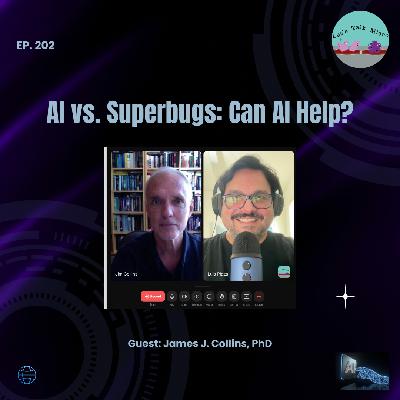
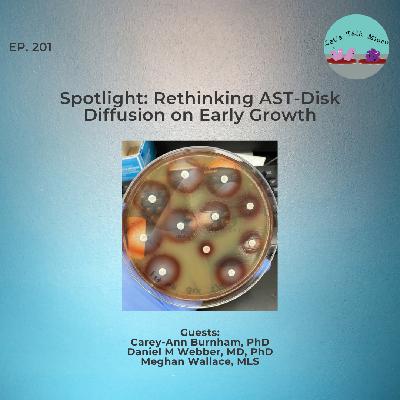
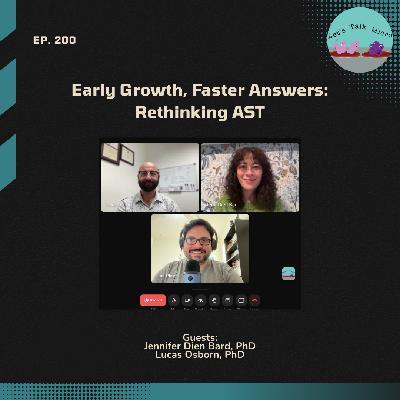
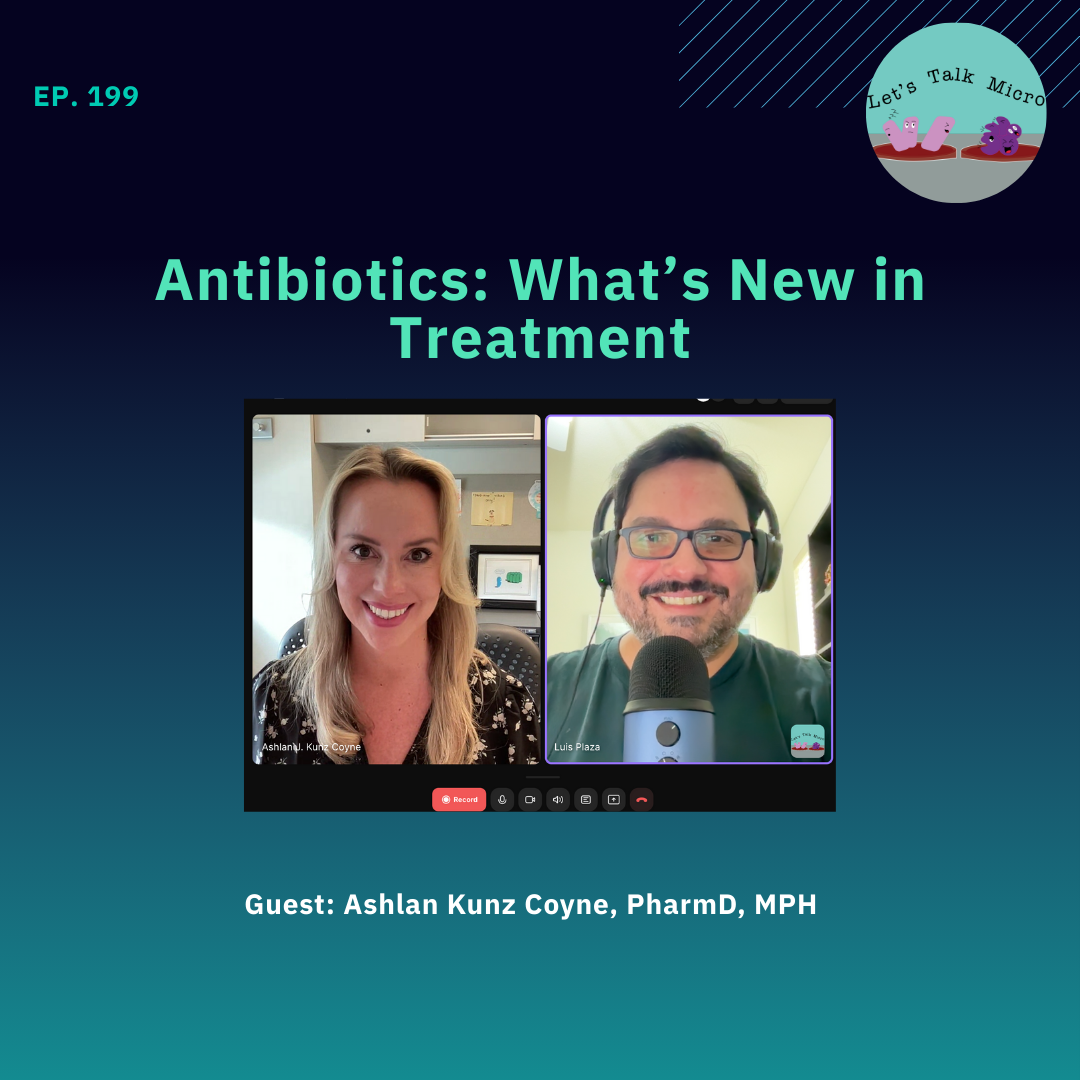
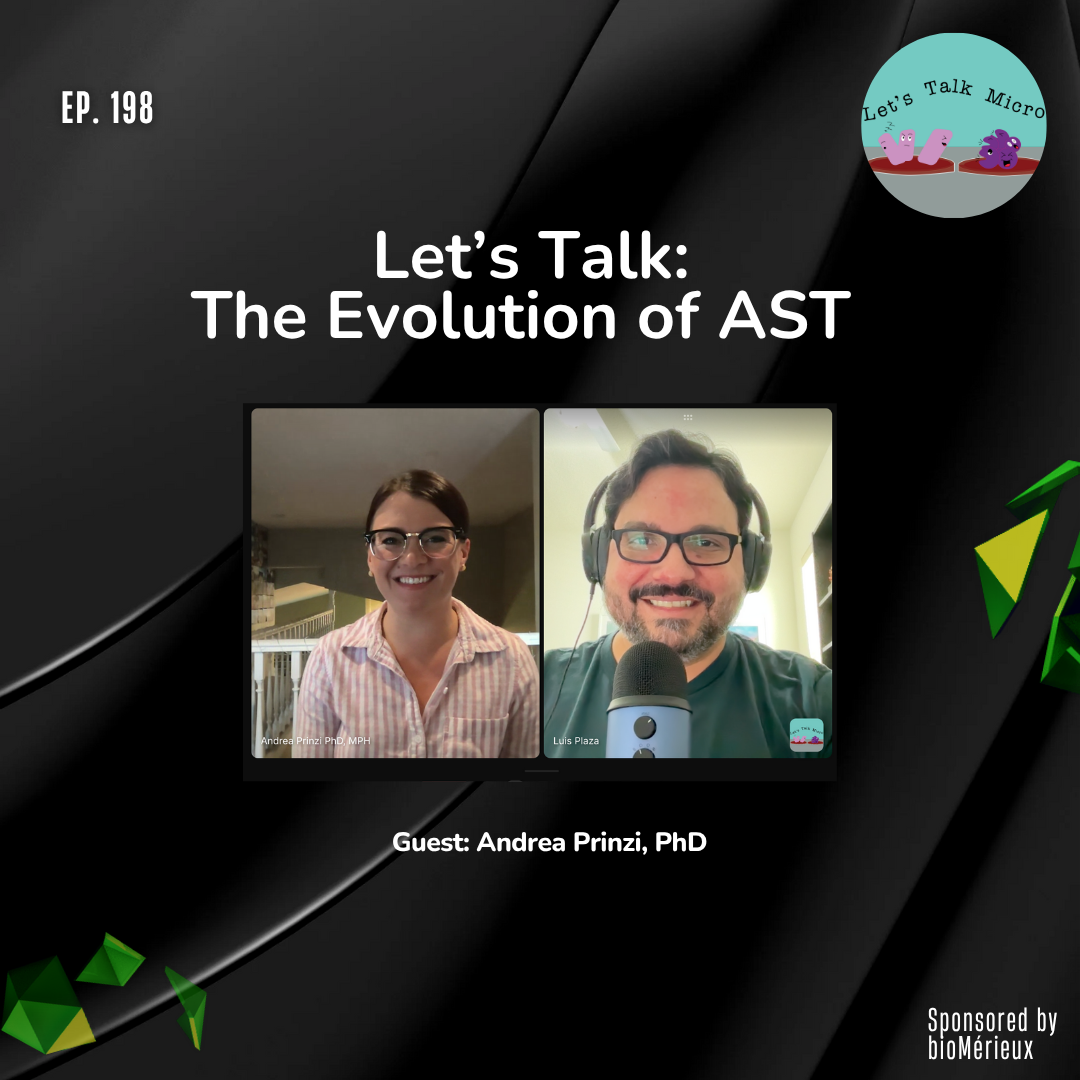
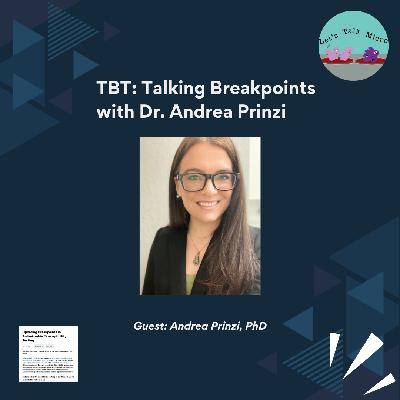
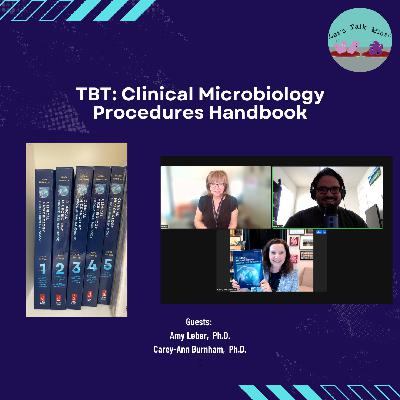
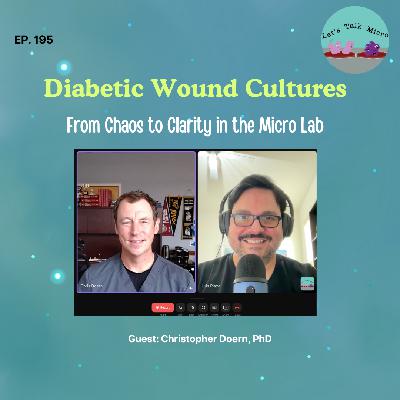
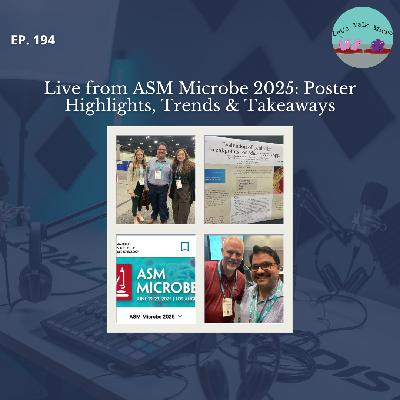

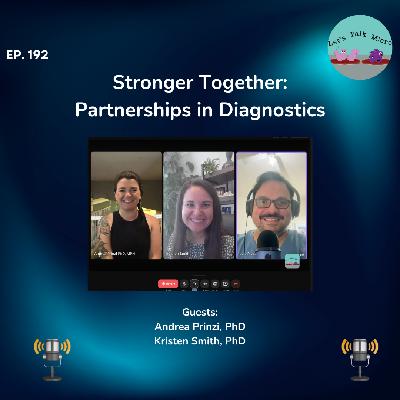
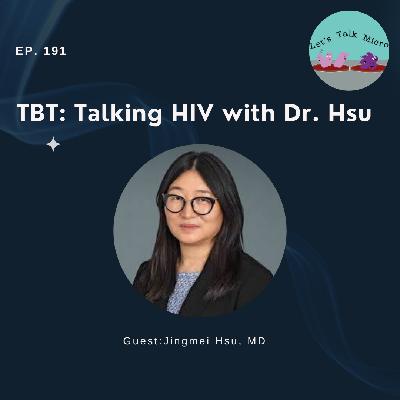
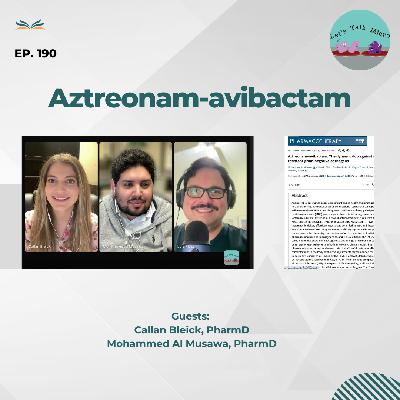
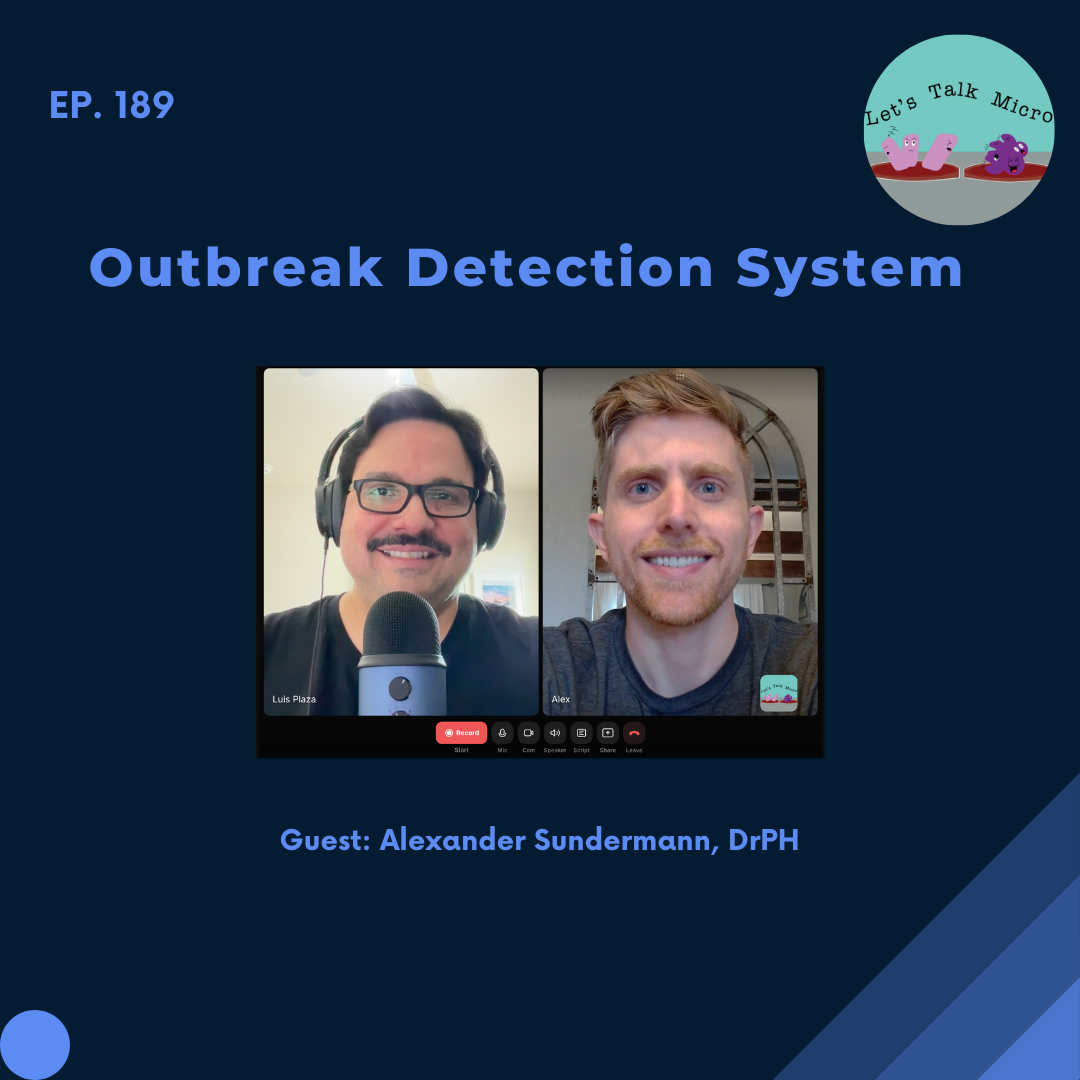
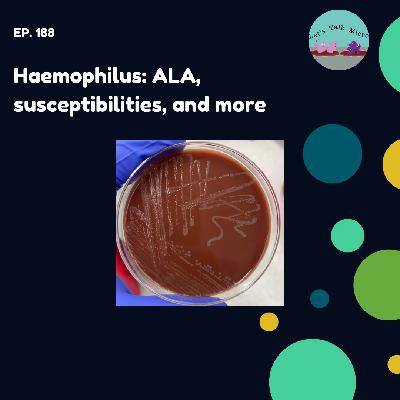
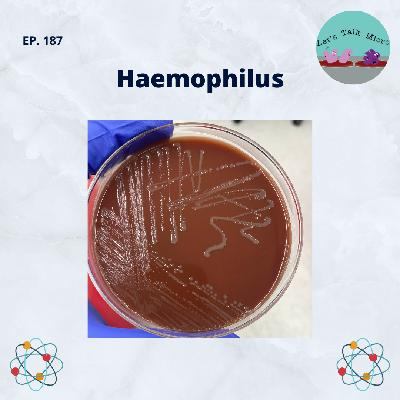
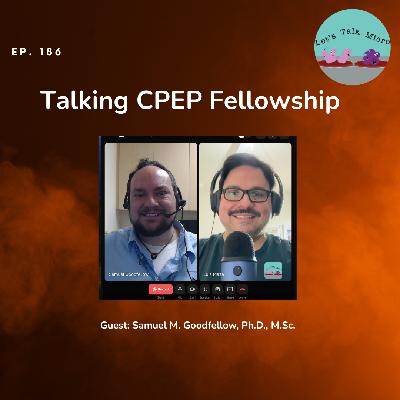
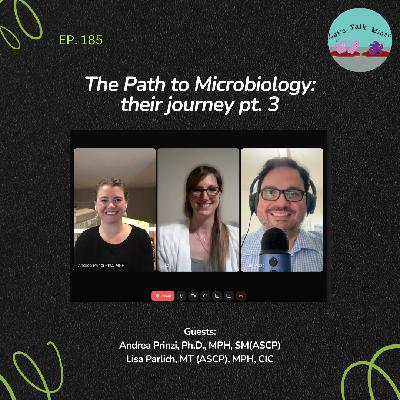
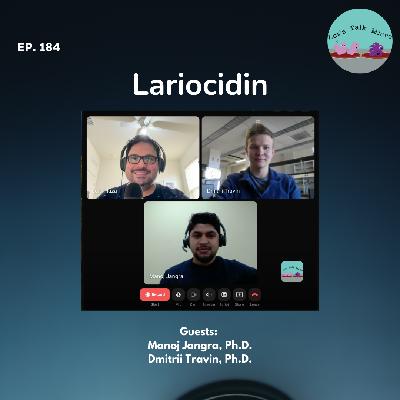
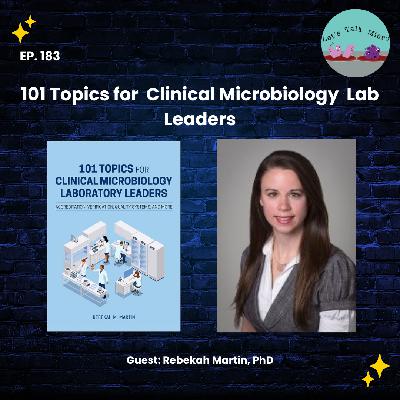


can you post the flow chart here also?